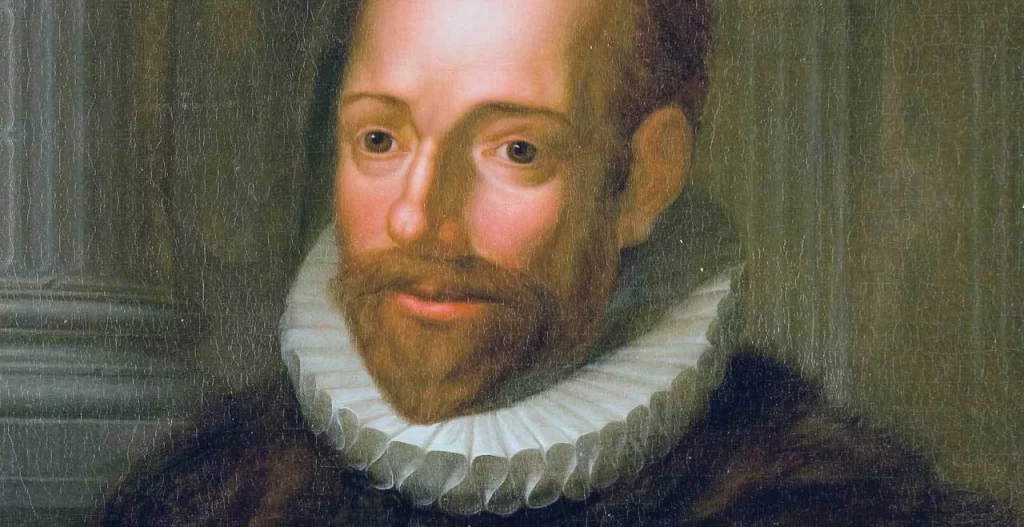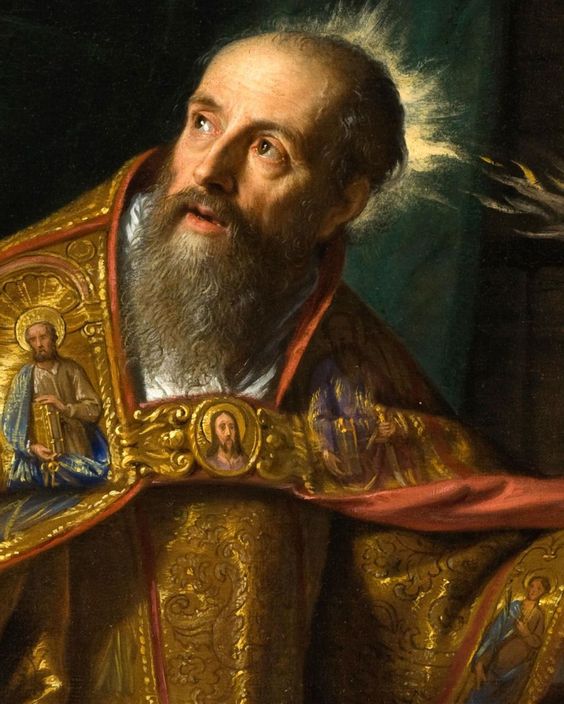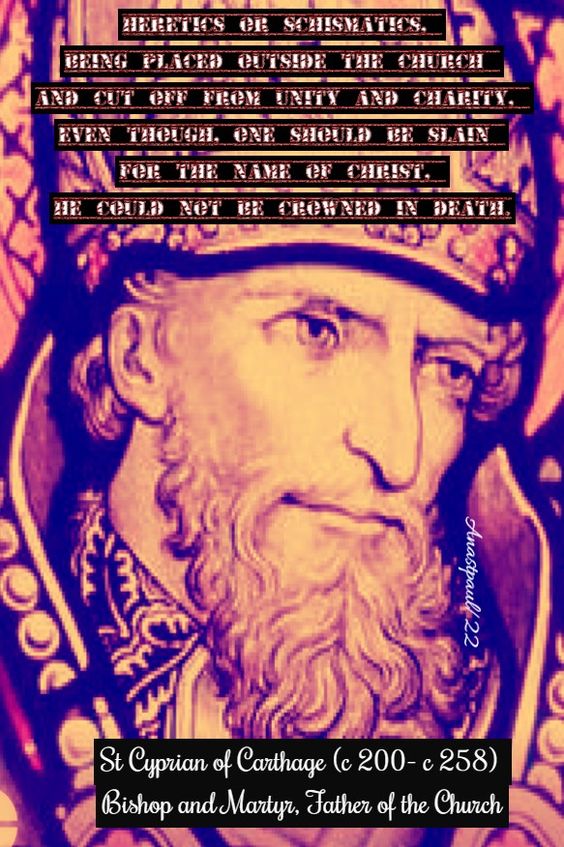Of Salvation (2)

Jacobus Arminius
(…continues from part one…)
2) Scripturally unfounded teaching that publishes the possibility of loss of salvation can best be seen as antagonism against security of salvation. It gained ecumenical momentum from the erudition of Jacobus Arminius (1560-1609), Dutch Protestant theologian who founded Arminianism which opposed John Calvin (1509-1564), who definitely went too far with his absolute predestinarianism. Loss of soteriological institution is never a mentioning of the Apostolic Fathers. Arminius was influenced by Søren Kierkegaard (1813–1855) an existentialist, social critic, religious author, a philosopher and without doubt, he had a leaning towards Hegelianism.
Long before Arminius, Saint Augustine of Hippo (354-430 AD) had taught the possibility of losing one’s salvation. Can Saint Augustine who upheld so many unbiblical teachings be trusted? “I should not believe the Gospel except as moved by the authority of the Catholic Church” (St. Augustine, Against the Epistle of Manichaean Called Fundamental, 5, 6). Can Catholicism be more authoritative than the Bible? In fashioning purgatorial establishment of Catholicism, “Temporal punishments are suffered by some in this life only, by some after death, by some both here and hereafter, but all of them before that last and strictest judgment. But not all who suffer temporal punishments after death will come to eternal punishments, which are to follow after that judgment” (St. Augustine of Hippo, Father and Doctor of the Church, The City of God). Purgatory runs contrary to Hebrews 9:27, “And as it is appointed unto men once to die, but after this the judgment:” so, how can this teaching stand, biblically.

Saint Augustine of Hippo (Art by Philippe de Champaigne 1645-1650)
Augustine was most probably the proponent of aeipartheonos– Perpetual Virginity of Mary–(Augustine, On Nature and Grace, De Natura et Gratia, 42 (36), in Nicene and Post-Nicene Fathers, V, ed. Philip Schaff, Grand Rapids: Wm. B. Eerdmans Publ. Co, 1980, 135). In Admonition and Grace, A.D. 426 aut 427, Augustine taught, “But if someone already regenerate and justified should, of his own will, relapse into his evil life, certainly that man cannot say: ‘I have not received’; because he lost the grace he received from God and by his own free choice went to evil.” Why do Catholic adherents pray for the dead? “It is not to be doubted that the dead are aided by prayers of the holy church, and by the salutary sacrifice, and by the alms, which are offered for their spirits . . . For this, which has been handed down by the Fathers, the universal church observes” (Sermon 172, in Joseph Berington and John Kirk, The Faith of Catholics, three volumes, London: Dolman, 1846; I: 439). In Forgiveness and the Just Deserts of Sin, and the Baptism of Infants 1:24:34, A.D. 412, Augustine taught that without baptism and taking of the Communion, it is impossible for any person to have salvation. Quoting Matthew 16:18, Augustine taught that Apostle Peter was the first Pope of the Catholic Church in Letters 53:1:2, A.D. 412
In On Rebuke and Grace (De correptione et gratia), Augustine wrote: “And what is written, that He wills all men to be saved, while yet all men are not saved, may be understood in many ways, some of which I have mentioned in other writings of mine; but here I will say one thing: He wills all men to be saved, is so said that all the predestinated may be understood by it, because every kind of men is among them.” Speaking of the twins Jacob and Esau, Augustine wrote in his book On the Gift of Perseverance, “[I]t ought to be a most certain fact that the former is of the predestinated, the latter is not.”

Antagonism against security of salvation: it spread like wild fire with the teaching of Jacobus Arminius: he got it from Saint Augustine who also received it from Bishop Cyprian of Carthage (c. 210-258 A.D.), one of the so-called Church Fathers– a creation of Catholicism – of whom many of their teachings uphold the illegitimacy of Popery headship of the universal body of Christ. Cyprian believed in infant baptism and infant communion. Cyprian however spoke against the efficiency of baptism done by heretics and insisted on their rebaptism, and he believed that the Eucharist cannot be properly consecrated outside the church. The Catholic Church believes that at the water baptism is when one gets born again, quite contrary to Scripture. Who does one believe, Jesus or the Church Fathers of Catholicism? Has Catholicism more authority than Pauline epistles to the Church?
John 3:14-15 “And as Moses lifted up the serpent in the wilderness, even so must the Son of man be lifted up: 15) That whosoever believeth in him should not perish, but have eternal life.”The key word to salvation is ‘believeth’ which in Greek is pisteuo (piy-stev’-ō): ‘1. to trust (in, upon, or with respect to, a person or thing), i.e. credit. 2. (passively) to be convinced. 3. (also) to entrust (especially with one’s spiritual well-being to Christ).’ Baptism comes secondarily in Mark 16:16 “He that believeth and is baptized shall be saved; but he that believeth not shall be damned.” Water baptism has nothing to do with salvation of the soul; it is merely a proof of the regeneration which took place when one turns Romans 10:8-10 into the prayer of salvation. Verse 9 reads, “That if thou shalt confess with thy mouth the Lord Jesus, and shalt believe in thine heart that God hath raised him from the dead, thou shalt be saved.” The word ‘believe’ is the same pisteuo as above.

Getting born again is a conscious effort on the part of an individual. Get born again. Say this sinner’s prayer.
“Dear heavenly Father, I come to You now in the name of Jesus Christ. I believe in my heart that Jesus is the Son of God. I believe that Jesus died on the cross for my sin. I believe that You raised Him from the dead. I confess with my mouth that Jesus is Lord and I receive Him now as my Lord and my Saviour. I give God all the glory. Amen!”
(…to be continued…)
Read part 1 here
Get part 3. Click
Visits: 235
